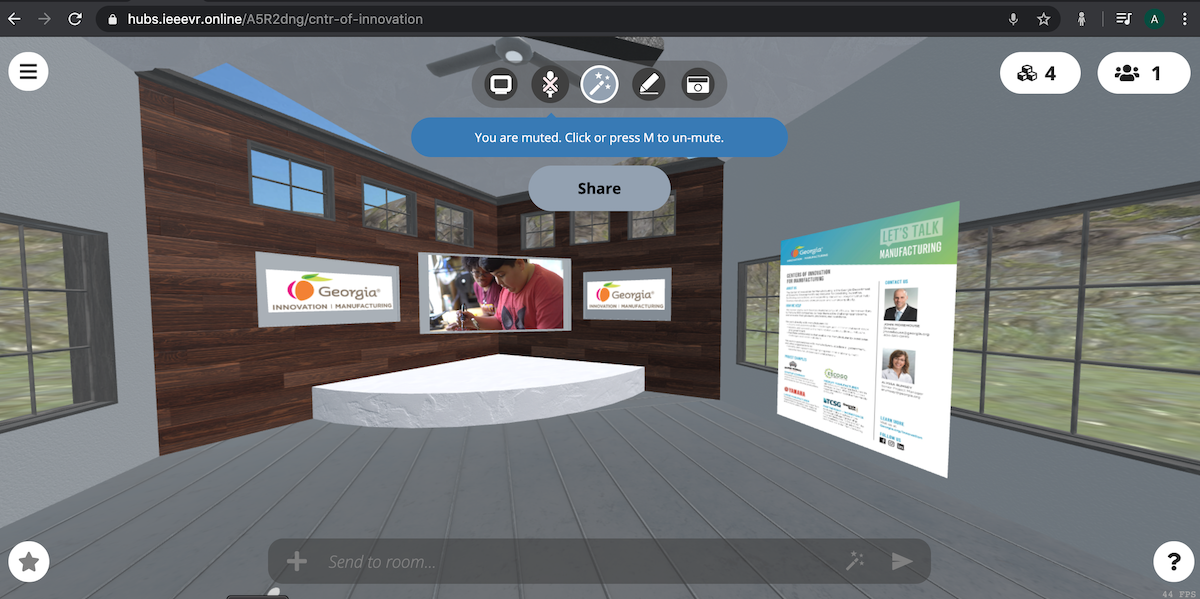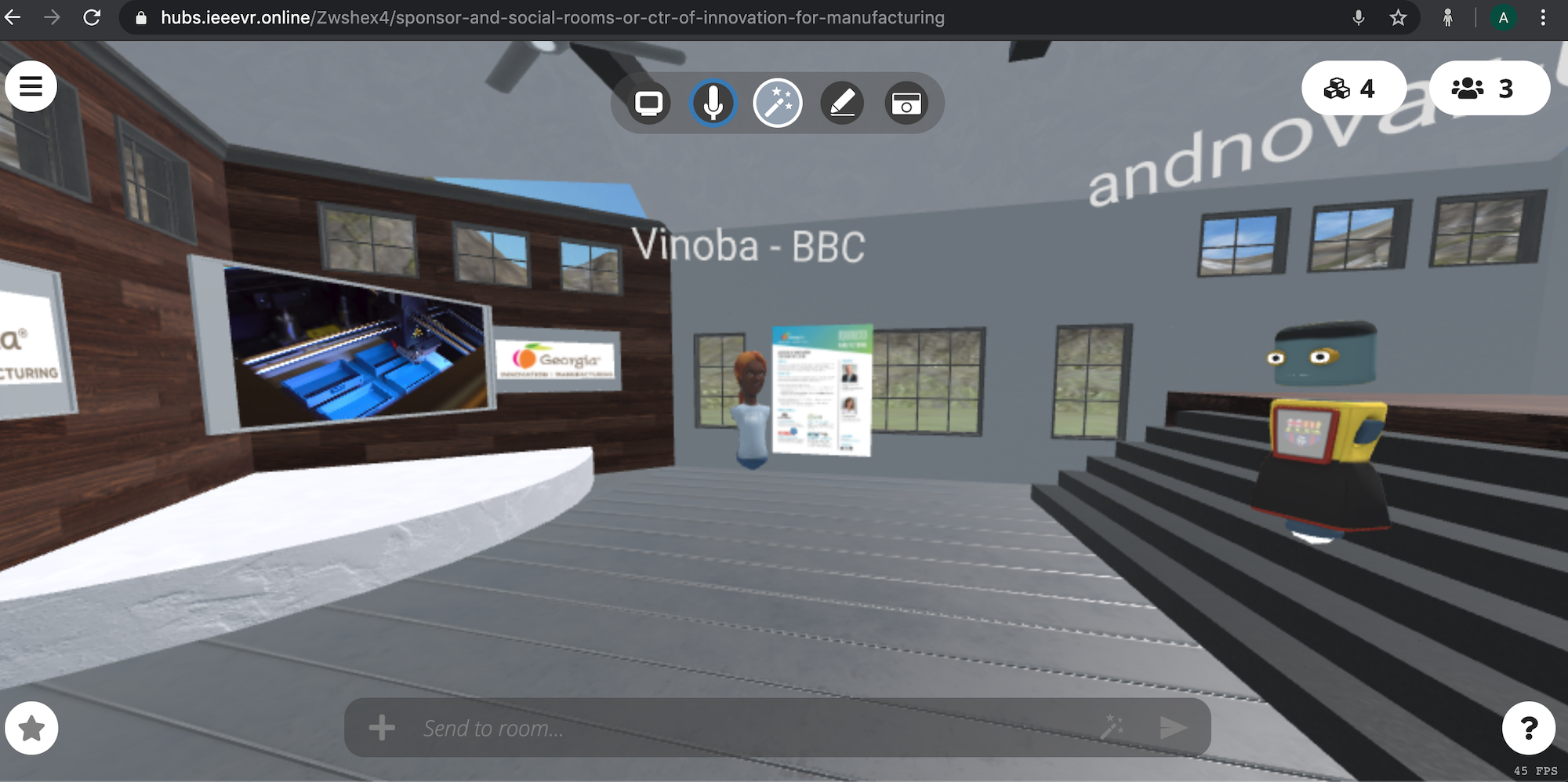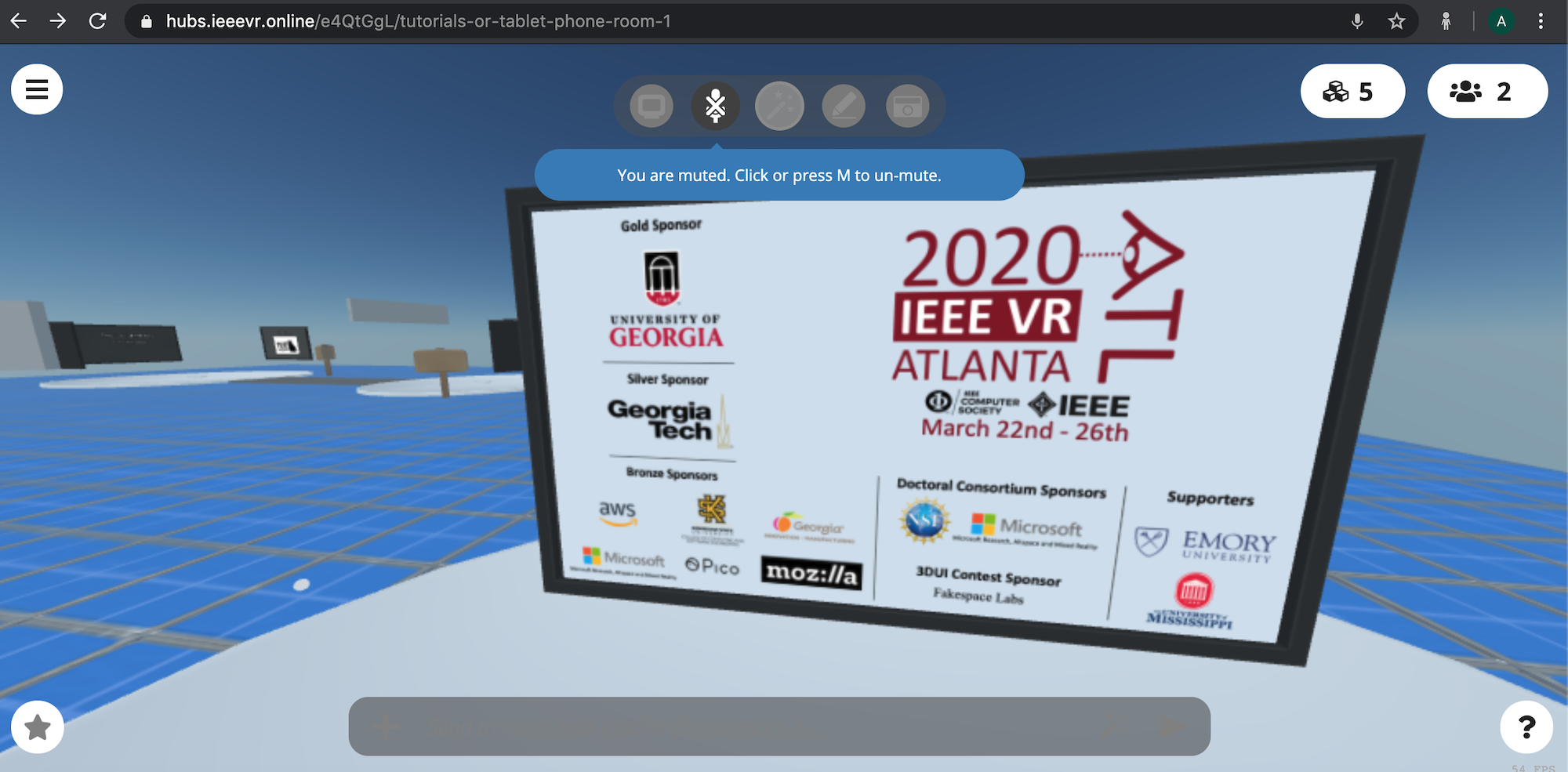IEEE VR Conference
 The IEEE VR conference is the premier international event for the presentation of research results in the broad area of virtual reality (VR). Since 1993, IEEE VR has presented groundbreaking research and accomplishments by virtual reality pioneers: scientists, engineers, designers, and artists, paving the way for the future.
The IEEE VR conference is the premier international event for the presentation of research results in the broad area of virtual reality (VR). Since 1993, IEEE VR has presented groundbreaking research and accomplishments by virtual reality pioneers: scientists, engineers, designers, and artists, paving the way for the future.
This year the 2020 conference was scheduled to take place in Midtown Atlanta but quickly adapted to the changing times to an entirely virtual conference venue. It goes without saying that this was no small feat for the organizers and sponsors to quickly react and adjust to the spread of Coronavirus. The continued support of flagship universities including Georgia Tech, University of Georgia, and Kennesaw State University as well as the Georgia Department of Economic Development - Center of Innovation for Manufacturing, enabled the conference to transition to an online experience for participants.
 It is also now a historic moment in the history of IEEE because it is the first time a conference has been hosted entirely virtually. The ability to participate remotely led to a record number of registered attendees reaching almost 2000 people.
It is also now a historic moment in the history of IEEE because it is the first time a conference has been hosted entirely virtually. The ability to participate remotely led to a record number of registered attendees reaching almost 2000 people.
The goal of hosting the conference in Atlanta was to emphasize the work and efforts of local businesses and the growing AR/VR research community in the Southeast. Georgia boasts cutting edge research and industry applications in AR/VR that are pushing the boundaries of technology development and use. Examples include the cutting-edge research conducted at Emory University leveraging VR to treat PTSD and Georgia Tech's labs dedicated to Augmented and Virtual Reality. In addition, companies including Delta Air Lines, Gulfstream, and AGCO, all headquartered in Georgia, are redefining the future of work with AR/VR technologies.
 As a sponsor for the IEEE VR conference, I was able to setup a virtual room using Mozilla hubs to share information about Georgia’s innovation ecosystem and interact with participants. While it was my first time using this platform, it was actually a great reprieve from the trials and tribulations of teleconferencing! The ability to interact with people as avatars provided a better sense of engagement than any other form of virtual or distance collaboration I have experienced to date. I was surprised at how real it felt; social norms like making room for other avatars happened naturally as people entered different virtual rooms and explored different topics. Not only was the setting a unique atmosphere that perfectly paired with the topic of the conference being VR in VR, but it was a great way to connect with people around the globe. I had conversations with researchers from the BBC all the way to folks in India and China. Not to mention the audio quality far surpassed some of the more traditional teleconferencing options. And you can do all of this from your laptop!
As a sponsor for the IEEE VR conference, I was able to setup a virtual room using Mozilla hubs to share information about Georgia’s innovation ecosystem and interact with participants. While it was my first time using this platform, it was actually a great reprieve from the trials and tribulations of teleconferencing! The ability to interact with people as avatars provided a better sense of engagement than any other form of virtual or distance collaboration I have experienced to date. I was surprised at how real it felt; social norms like making room for other avatars happened naturally as people entered different virtual rooms and explored different topics. Not only was the setting a unique atmosphere that perfectly paired with the topic of the conference being VR in VR, but it was a great way to connect with people around the globe. I had conversations with researchers from the BBC all the way to folks in India and China. Not to mention the audio quality far surpassed some of the more traditional teleconferencing options. And you can do all of this from your laptop!
 There are opportunities for technology to transform the future and this virtual experience illustrated one way that virtual reality could become more incorporated into our communication practices. This experience helped breakdown barriers more than just distance including the train of thought that virtual reality is only for gaming. I’ve never been a gamer but I was able to easily pick up that your avatar really does embody your personality. Additionally, setting up your own meeting space in a virtual context gives you the ability to generate custom content in a way that you’ve never thought about before, pushing the boundaries of creativity.
There are opportunities for technology to transform the future and this virtual experience illustrated one way that virtual reality could become more incorporated into our communication practices. This experience helped breakdown barriers more than just distance including the train of thought that virtual reality is only for gaming. I’ve never been a gamer but I was able to easily pick up that your avatar really does embody your personality. Additionally, setting up your own meeting space in a virtual context gives you the ability to generate custom content in a way that you’ve never thought about before, pushing the boundaries of creativity.
The 2020 IEEE VR conference deserves accolades for continuing their groundbreaking mission and we should be proud that Georgia universities, companies, and organizations supported bringing this effort to participants.
Author: Alyssa Rumsey - Project Manager, Georgia Center of Innovation for Manufacturing
March 26, 2020
